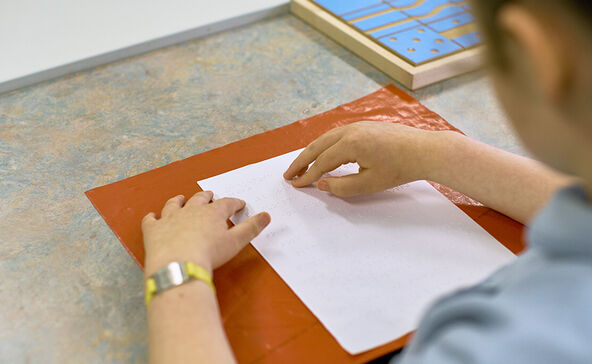- Vision
Students who use braille will be able to have equitable access to maths and science textbooks, thanks to a collaboration between researchers from the USA and Europe that NextSense experts are taking part in.
The Raised Math Project is making it possible to transcribe maths textbooks for a fraction of the cost and time required for manual transcription.
The innovation aims to achieve this by developing a user-friendly software workflow to automatically translate mathematical text to braille, ready for embossing.
NextSense experts in vision and accessibility, Dr Frances Gentle and Sonali Marathe took part in the Raised Math Project through their industry associations. Frances is President of the International Council for Education of People with Visual Impairment (ICEVI), and Sonali is President of the Round Table on Information Access for People with Print Disabilities.
‘Braille maths and science textbooks are time-consuming and expensive to produce. It can take up to six months to produce a complex maths book, and cost thousands of dollars to be transcribed into braille,’ says Sonali.
This can result in students experiencing significant delays in their learning, and ultimately doesn’t allow for equity and equal access to knowledge as their sighted peers.
Converting large mathematical formulas to braille and creating tactile graphs and diagrams ready for embossing requires significant manual intervention. But the Raised Math software workflow will make it possible for written texts to be accurately converted to braille.
Automating this process for maths and science texts is key to equal access for students who use braille.
Sonali attended a recent workshop about the automated production of braille textbooks at the Headquarters of the National Federation of the Blind in Baltimore, United States.
The workshop’s focus was the accurate translation of both maths and literary text into braille and to develop pathways towards the automatic production of raised embossed graphics.
Sonali says: ‘Ultimately, we need to significantly reduce the time needed by transcribers to produce ready-to-use braille versions of maths text for students who are blind.’
NextSense is hosting two free two-hour international workshops, in collaboration with the Raised Mathematics Project and ICEVI on 27 and 28 September 2022.
